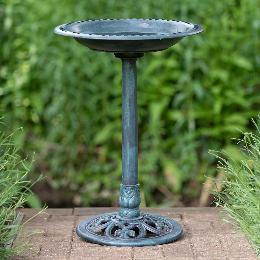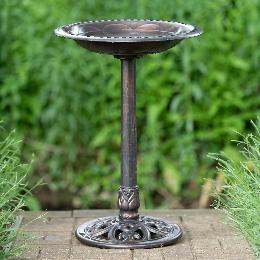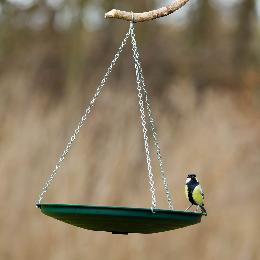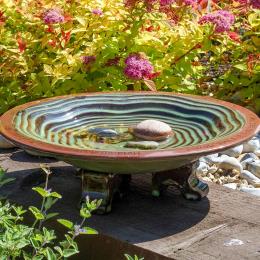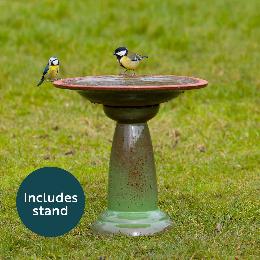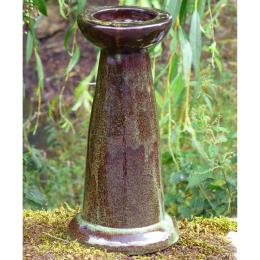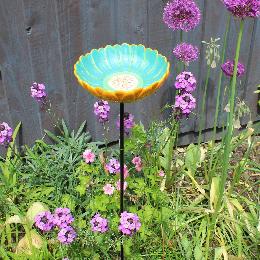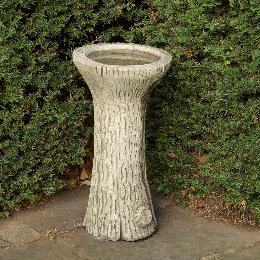Unhappy with your item? We offer no-quibble free returns
Sourced through ethical and sustainable accreditations
£3.95 standard UK shipping, or free shipping over £20
Every purchase you make supports wildlife
Bird bath range for garden birds
Birds need water for drinking and bathing. There are many ways of providing water in the garden, but the simplest? A bird bath.
Bird baths are particularly important in weather extremes: During winter when natural supplies may be frozen, and in dry conditions such as hot summers with weeks of no rain.
To find out more about choosing a bird bath and water for birds, you can view our Bird baths guide.
Cleaning advice
Make sure you change the water in your bird bath daily and give bird baths a thorough clean once a week to help prevent the spread of disease. Read our cleaning advice and take a look at our collection of bird safety and hygiene products, which include everything you need to keep your bird bath sparkling clean.
Bird bath FAQs
Should a bird bath be in the sun or shade?
Can a bird bath be too deep?
How do you clean a bird bath?
- Empty the old water out of your bird bath, removing any old leaves or twigs whilst doing so.
- Use a sponge and soapy water to scrub the bird bath, paying particular attention to areas with lots of dirt or algae.
- Apply a non-toxic disinfectant, like Ark-Klens spray. Leave it on for a few minutes before rinsing off.
- Leave your bath to air-dry before refilling it with fresh water.
